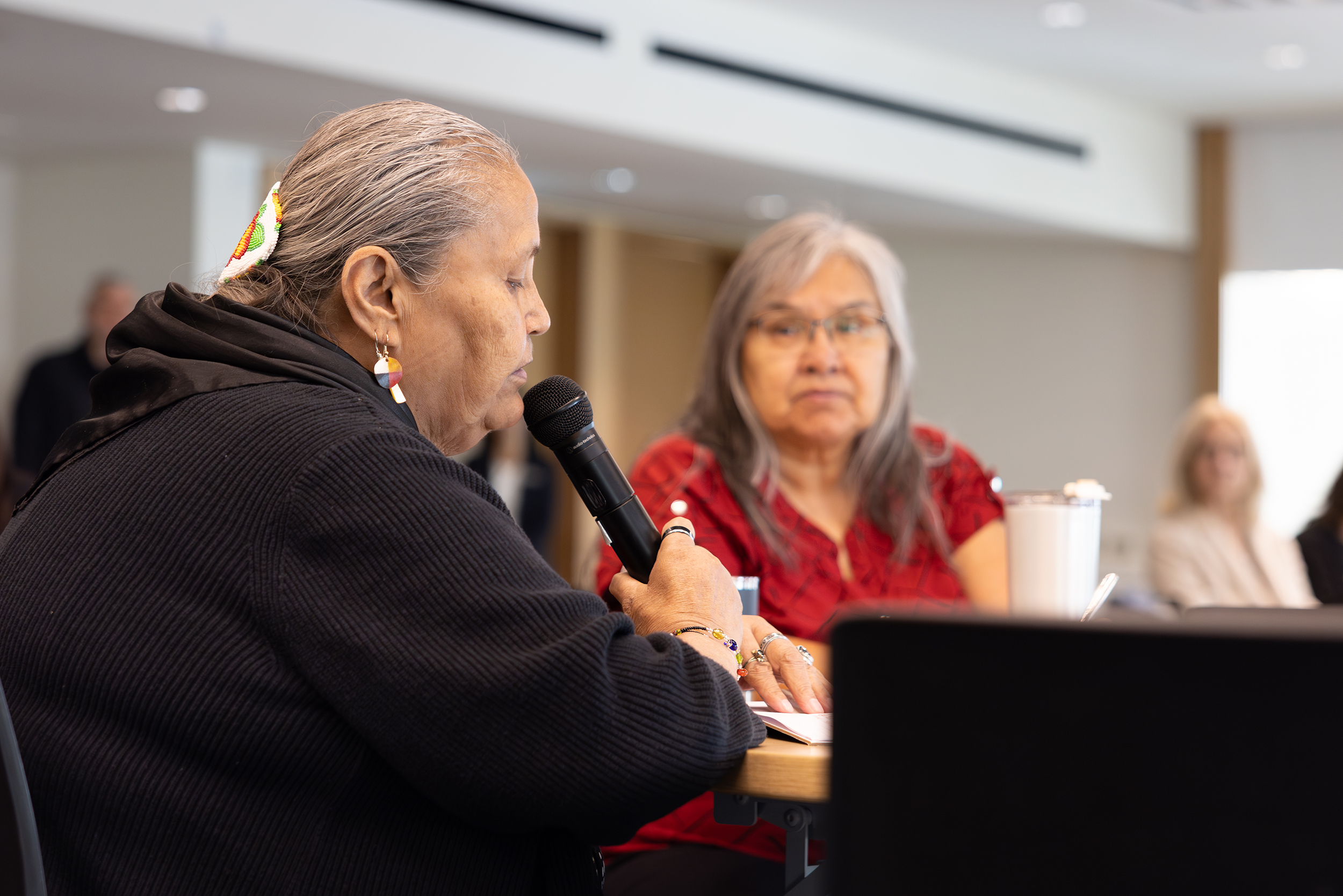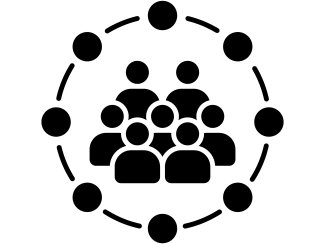Land Acknowledgement

We acknowledge that the two main campuses of the University of British Columbia are located on the traditional, ancestral, and unceded territories of the xʷməθkʷəy̓ əm (Musqueam) and Syilx Okanagan Nation. We also recognize that UBC’s activities take place in the community on the unceded, ceded, and traditional territories of over 200 First Nations and 39 Métis Chartered Communities. Each possesses their own unique traditions and history on the land that we refer to as British Columbia, and we acknowledge the traditional guardians and caretakers of these territories.
About the Event
Building on the calls to action established through UBC Health-hosted dialogue events (2021-2024), Bridging Research and Action held on May 15 & 16, 2025. The event connected partners from across BC’s health system, research ecosystem, and communities to explore how research insights can be translated into actionable strategies to improve health across the province. It aimed to bring together diverse perspectives and sectors to catalyze the integration of research and innovation into practice and develop shared aims for implementation.
Over two days, we brought together researchers, practitioners, policy leaders, patient and community partners, and other interest-holders across sectors to showcase relevant research and innovation; facilitate dialogue across disciplines and sectors, and to build shared aims for integrating research into practice. It was deliberately designed to be inclusive, with in-person sessions on UBC Point Grey and Okanagan campuses and virtual access for province-wide participation
Who Took Part
Attendees
Diverse Speakers

Speakers represented a broad spectrum of roles and institutions, including:
- Faculty and researchers from multiple UBC faculties such as Medicine, Nursing, Pharmaceutical Sciences, Applied Science, Social Work, and Education.
- Health care leaders and clinical practitioners from Vancouver Coastal Health, Fraser Health, Interior Health, Northern Health, and the Provincial Health Services Authority.
- Community organizations and patient partners, ensuring that lived experience and community voices were central to the event.
- Indigenous consultants and knowledge keepers who enriched discussions with cultural insights and guidance.
- Experts in digital health, data science, and AI from academic, clinical, and innovation sectors.
- Representatives from other universities and research institutes across Canada.
Themes & Topics Explored
Over two days, the program covered an extensive array of themes, including:
- Indigenous Knowledge and Health Equity: Opening plenaries and dedicated sessions highlighted Indigenous perspectives, traditional knowledge, and health equity frameworks.
- Digital Health and Artificial Intelligence: Sessions explored AI’s role in rural health care, digital resilience among youth, ethical AI integration, and AI-enabled learning health systems.
- Learning Health Systems: Several sessions focused on enabling environments for continuous learning and rapid knowledge mobilization within health systems.
- Community and Patient Engagement: Emphasis was placed on storytelling, lived experience, and community-centred approaches to research and health innovation.
- Interprofessional Education and Team-Based Care: Workshops and case studies showcased transformative primary care education and practical tools for team-based care.
- Research Implementation and Infrastructure: Case studies and panels examined guideline implementation, research integration into clinical practice, and infrastructure development.
- Climate and Environmental Health: Sessions explored the intersection of climate migration and health, as well as climate change’s mental health effects.
- Arts-Based Research: Innovative arts-based methods were presented as powerful tools to fill gaps in traditional healthcare and drive community action.

Indigenous Knowledge in Action
This session featured Duane Jackson, Dr. Christopher Horsethief, and Dr. Gabrielle Legault, who explored questions of meaningful collaboration, Indigenous-led governance, and the role of health system actors in supporting and complementing Indigenous leadership.

Care is Research & Research is Care
This session featured a dialogue between BC’s health authorities and academic institutions on how they are working together to advance research-integrated care through shared priorities, mutual understanding and strategic collaborations.

Building Digital Resilience in Youth
This session explored the dual role of social media in supporting and challenging youth mental health, focusing on how it shapes mental health outcomes and how digital resilience can be strengthened through collaboration across the health sector.
Cross Campus Commitment
The event was intentionally designed for cross-campus engagement and province-wide dialogue, with sessions hosted at both UBC Point Grey and Okanagan, as well as virtual participation from across BC. Most participants responding to the post-event survey were extremely satisfied with the effectiveness of the cross-site hybrid format
What We Heard
Participants found the sessions relevant and appreciated learning from diverse perspectives, with a majority noting that the context applied to their work. Many participants reported meeting someone new or strengthening existing relationships, with some indicating plans to follow up or co-develop initiatives.
Participants highlighted the value of bringing together diverse voices and perspectives to drive collaboration and change. Research participants in particular noted the event helped surface potential collaborations, but they also highlighted the need for more structured mechanisms to support these partnerships after the event. There is an opportunity to consider how UBC Health can support that follow-up in a more intentional way, whether through smaller thematic gatherings, shared platforms, or formation of working groups or communities of practice.
While participants found value in the content, they wanted more structured networking and interactive opportunities, including fewer concurrent sessions and more built-in time for informal exchange.
What Actions Came Out
The event sessions generated a range of actionable themes, highlighting both immediate next steps and longer-term opportunities for collaborative impact. Key themes that emerged include:
UBC Health’s Commitment – Areas for Future Convening
The event affirmed the value of connection and the complexity of convening across diverse roles, regions, and realities. UBC Health is committed to continuing this work by creating intentional spaces for shared learning, relationship-building, and coordinated action across BC’s health system.
Looking ahead, UBC Health will focus on:
- Strategically timed events that align with key milestones and priorities
- Purpose-driven design, using events to surface tensions, align priorities, and track shared progress
- Focused gatherings that deepen engagement on critical topics
- Ongoing collaboration with partners and interest holders to co-design programming that connects research, care, and education
Through its engagement strategy, UBC Health will continue to activate networks, strengthen research-practice-community integration, and support the growth of learning health systems grounded in equity, engagement, and real-world impact.
Evaluation Summary
Session Experience
Of the participants who completed the post-event survey, the sessions were highly rated for both quality and relevance.
- Quality: 84% sessions rated as Excellent/Good
- Relevance: 90% sessions rated as Relevant
- Value: 88% sessions rated as Valuable
Connection and Collaboration
- 70% of session speakers reported engaging with someone they intend to follow up with.
- 36% reported a collaboration, working group, or action emerging from their session.
Event Satisfaction

Overall, participants who completed the post-event survey were satisfied with the logistics of the event. The majority of respondents were extremely or somewhat satisfied in all categories: organization, program, facilitation, format (cross-site hybrid), and networking opportunities.
Reflections for the Future
The event was appreciated for its inclusiveness, but also highlighted key areas for improvement for future gatherings. Moving forward, participants desired:
- More informal and structured opportunities for interaction, beyond sessions, to build shared understanding and next steps
- Better balance between breadth and depth, especially in session design, with fewer concurrent sessions and more time for productive dialogue
- Clearer mechanisms and support for momentum post-event engagement, including follow-up on collaborations, working groups, or shared initiatives
These reflections will guide our efforts to make convening more focused, participatory, and action-oriented to ensure UBC Health events serve as spaces to catalyze coordinated and sustained action.
THANK YOU
Thank you to all the participants, speakers, partners, and supporters who made Bridging Research and Action possible. The event was shaped by the collective energy, insight, and generosity of more than 500 individuals across the province and beyond. Your willingness to share, listen, and co-create helped spark new conversations and build the foundations for future collaboration. Special thanks to the advisory committee, session leads, volunteers, and staff who brought intention and care to every aspect of planning and delivery, and to the many contributors across UBC Vancouver, UBC Okanagan, and the broader community to helped us reach across geographies, campuses, and sectors.
Acknowledgements
We extend our gratitude to all members (and delegates) of the Advisory Committee, whose invaluable insights and expertise have been instrumental in shaping the event.
Krista Allan, Vice President, Quality, Research, Chief Nursing and Allied Health Officer, Island Health
Vikram Bubber, Patient Partner
Stirling Bryan, Chief Scientific Officer, Michael Smith Health Research BC; Professor, School of Population and Public Health, Faculty of Medicine, UBC Vancouver
Gen Creighton, Knowledge Exchange Manager, UBC Knowledge Exchange Unit
Rubee Dev, Assistant Professor, School of Nursing, Faculty of Applied Science, UBC Vancouver
Kate Keetch, Director, Department of Evaluation and Research Services, Fraser Health
Jacqueline Per, Executive Director, Learning and Research, Project Lead - SFU School of Medicine, Fraser Health; Adjunct Professor, School of Nursing, Faculty of Applied Science, UBC Vancouver
Darcia Pope, Vice President, Strategy, Innovation & Planetary Health, Vancouver Coastal Health
Kim Schmidt, Research Director, Edwin S.H. Leong Centre for Healthy Aging, UBC
Rob Shave, Special Advisor to the Vice-Principal, Research and Innovation, Professor, School of Health and Exercise Sciences, Faculty of Health and Social Development, UBC Okanagan
Sana Shahram, Assistant Professor, School of Nursing, Institute for Healthy Living and Chronic Disease Prevention, Faculty of Health and Social Development, UBC Okanagan
Michelle Stack, Associate Professor, Department of Educational Studies, Faculty of Education, UBC Vancouver
Khirsty MacArthur, Patient Partner
Cheryl Mitchell, Associate Teaching Professor; Academic Director, MBA in Sustainable Innovation; Gustavson School of Business, University of Victoria
Rachael Ritchie, Director of Innovation, Vancouver Coastal Health
Dee Taylor, Corporate Director, Research, Interior Health; Adjunct Professor, School of Nursing, Faculty of Health and Social Development, UBC Okanagan
Angela Wignall, Chief Executive Officer, Nurse and Nurse Practitioners of BC


